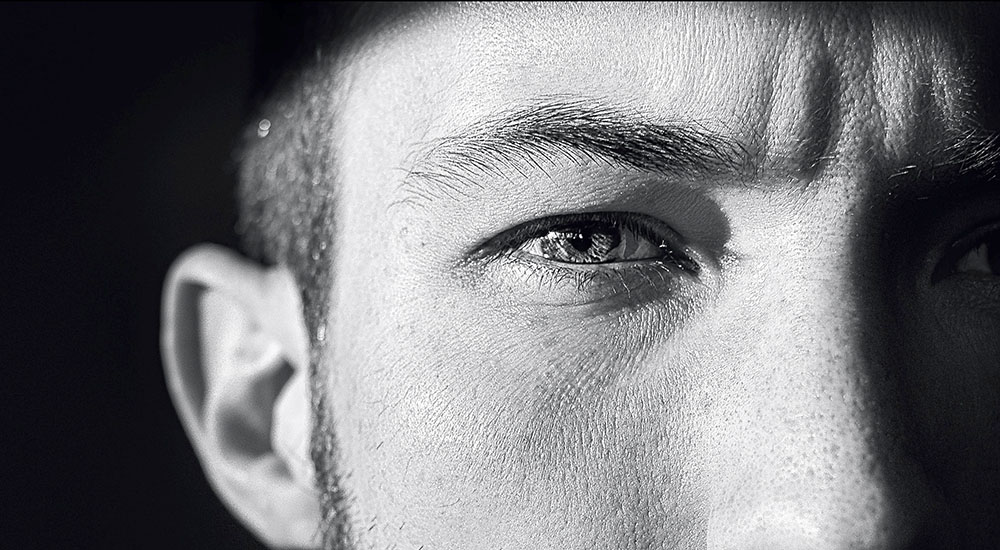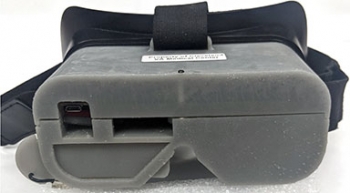Innovation Revolutionary is a regular series from the VHA Innovation Ecosystem. The series focuses on VA employees who are disrupting the status-quo, breaking down barriers, and attempting to radically revolutionize Veteran care and employee experience.
Vestibular neurologist and electrical engineer at Cleveland VA, Dr. Mark Walker, is interested in more than just the diagnosis of dizziness and balance disorders. “My passion is really trying to understand what’s going on in the brain when a patient is dizzy so I can treat the problem effectively and efficiently.”
For the estimated seven million Americans who seek medical treatment for dizziness each year, one of the most vital parts of their diagnosis is watching their eye movements during an episode. Since episodes happen at any time and often not in the clinic, Walker finds diagnosing to be difficult and asked himself, “How can I examine a patient when they have an attack at home?”
Walker and VA Advanced Platform Technology Center engineers Frank Zitko and Will Rasper conceived a pair of goggles that records a patient’s eye movements during a dizzy spell. To make this a reality, Walker was supported through the VHA Innovators Network (iNET) Spark-Seed-Spread Innovation Investment Program to develop a prototype of his innovation in 2019.
Making fantasy a reality
In 15 years at VA, Walker has spent a lot of time conducting research, learning to bridge the gap between clinical work and what he does in the lab. “It’s been refreshing to innovate in both research and the clinic, made possible by institutional support to move beyond existing barriers and try out new things so they are not just a fantasy.”
Walker knew the research mindset of asking questions, finding new ideas, questioning those ideas and failing successfully could also lead to great clinical innovations for Veterans.
Preventative care
Dizzy spells that Veterans experience may only last for a few minutes, but they can have lasting effects – making diagnosis even more important for long-term health care. Even when the problem is minor, it can make everyday life more dangerous (imagine an episode while driving). Immediate diagnosis will help to prevent future damage and minimize long-term impact.
Walker noted that Veterans who have used the device report they are more motivated and invested in their care plan. Others are eager to try it at home, hoping to gain a better understanding of their condition so they can be relieved of the frustration and anxiety that often accompany the episodes.
While this idea has long been on Walker’s mind, his innovation journey has helped him “Learn not to be too tied to my own solution but to be open to other approaches that may solve this problem.” With this mindset and the help of those at the institutional level who support breaking barriers, he is only just beginning to revolutionize care for Veterans.
Want to support VHA IE’s innovation revolution? Visit our website (https://www.va.gov/innovationecosystem/) to learn about opportunities to become involved in innovation at VA.
Topics in this story
More Stories
Watch the Under Secretary for Health and a panel of experts discuss VA Health Connect tele-emergency care.
The 2024 National Veteran Suicide Prevention Annual Report provides the foundation for VA’s suicide prevention programs and initiatives.
Theranostics is a specialized field of nuclear medicine that uses a two-pronged approach to diagnose and treat cancer.








